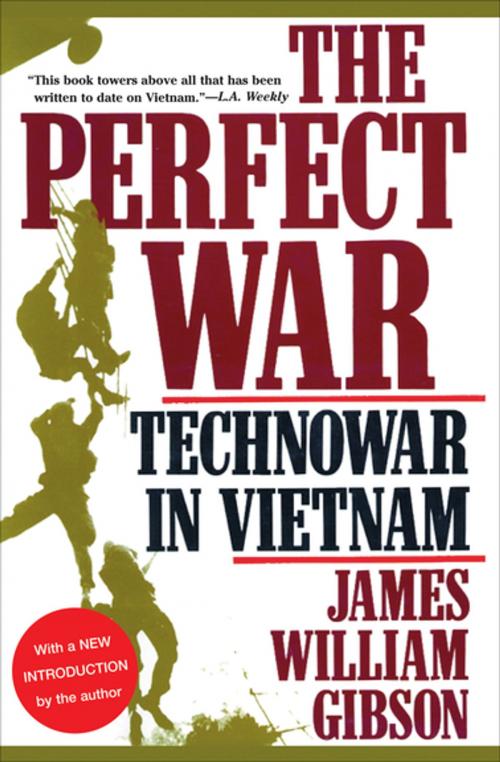| Author: | James William Gibson | ISBN: | 9780802196811 |
| Publisher: | Grove Atlantic | Publication: | December 1, 2007 |
| Imprint: | Atlantic Monthly Press | Language: | English |
| Author: | James William Gibson |
| ISBN: | 9780802196811 |
| Publisher: | Grove Atlantic |
| Publication: | December 1, 2007 |
| Imprint: | Atlantic Monthly Press |
| Language: | English |
“Powerfully and persuasively . . . Gibson tells us why we were in Vietnam . . . a work of daring brilliance—an eye-opening chronicle of waste and self-delusion.” —Robert Olen Butler
In this groundbreaking book, James William Gibson shatters the misled assumptions behind both liberal and conservative explanations for America’s failure in Vietnam. Gibson shows how American government and military officials developed a disturbingly limited concept of war—what he calls “technowar”—in which all efforts were focused on maximizing the enemy’s body count, regardless of the means. Consumed by a blind faith in the technology of destruction, American leaders failed to take into account their enemy’s highly effective guerrilla tactics. Indeed, technowar proved woefully inapplicable to the actual political and military strategies used by the Vietnamese, and Gibson reveals how US officials consistently falsified military records to preserve the illusion that their approach would prevail. Gibson was one of the first historians to question the fundamental assumptions behind American policy, and The Perfect War is a brilliant reassessment of the war—now republished with a new introduction by the author.
“This book towers above all that has been written to date on Vietnam.” —LA Weekly
“Powerfully and persuasively . . . Gibson tells us why we were in Vietnam . . . a work of daring brilliance—an eye-opening chronicle of waste and self-delusion.” —Robert Olen Butler
In this groundbreaking book, James William Gibson shatters the misled assumptions behind both liberal and conservative explanations for America’s failure in Vietnam. Gibson shows how American government and military officials developed a disturbingly limited concept of war—what he calls “technowar”—in which all efforts were focused on maximizing the enemy’s body count, regardless of the means. Consumed by a blind faith in the technology of destruction, American leaders failed to take into account their enemy’s highly effective guerrilla tactics. Indeed, technowar proved woefully inapplicable to the actual political and military strategies used by the Vietnamese, and Gibson reveals how US officials consistently falsified military records to preserve the illusion that their approach would prevail. Gibson was one of the first historians to question the fundamental assumptions behind American policy, and The Perfect War is a brilliant reassessment of the war—now republished with a new introduction by the author.
“This book towers above all that has been written to date on Vietnam.” —LA Weekly















